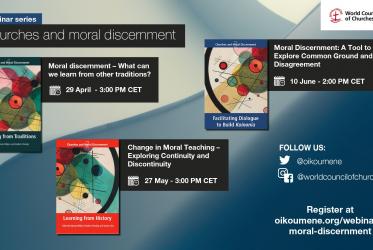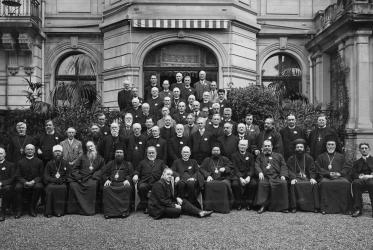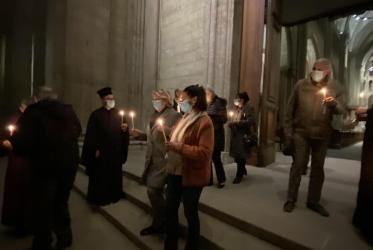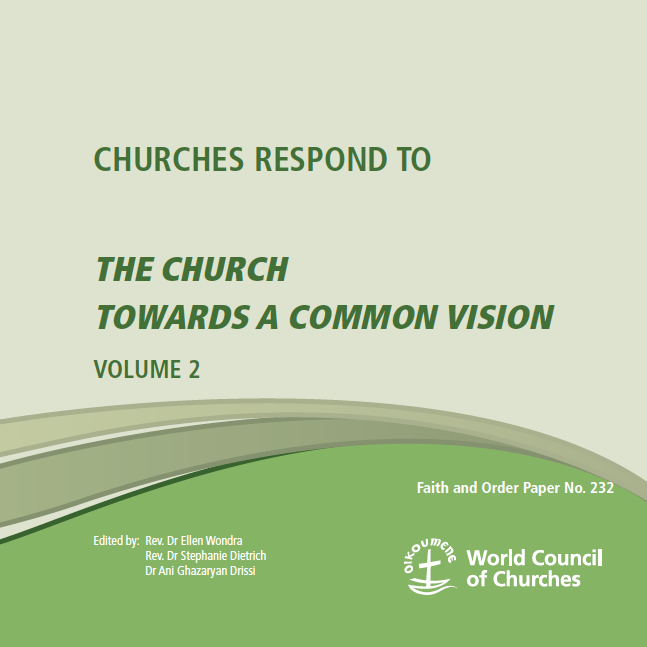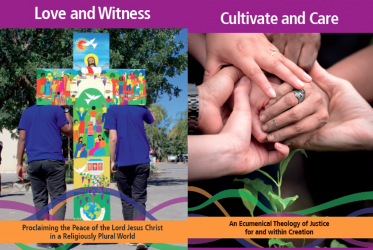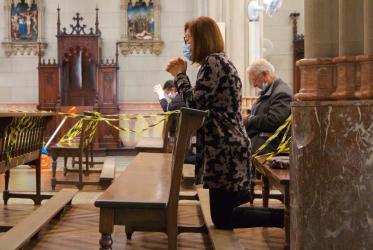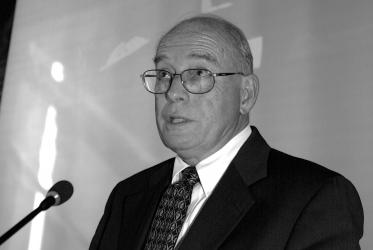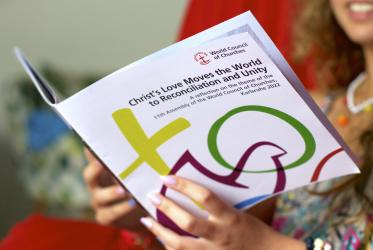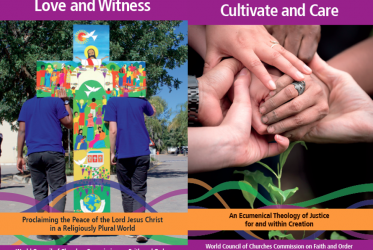Displaying 141 - 160 of 353
29 April - 15 June 2021
Online-By registration only
Webinar: “Anglican-Orthodox Dialogue: History, Results, Reception”
09 March 2021
Online-By registration only
The ecumenical spirit at Calvin’s Cathedral
24 February 2021
Churches Respond to "The Church: Towards a Common Vision"
23 February 2021
Churches Respond To The Church: Towards A Common Vision Volume I
Faith and Order Paper No. 231
23 February 2021
Churches Respond To the Church: Towards a Common Vision Volume II
Faith and Order Paper No. 232
23 February 2021
WCC webinar “Common witness on environmental justice and religious pluralism”
18 February 2021
Online-By registration only
WCC to host online prayer for Week of Prayer for Christian Unity
21 January 2021
Love and Witness
Proclaiming the Peace of the Lord Jesus Christ in a Religiously Plural World
18 January 2021

